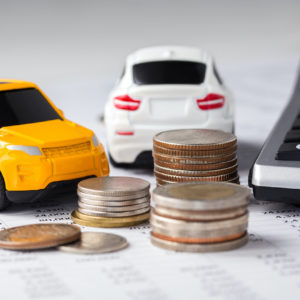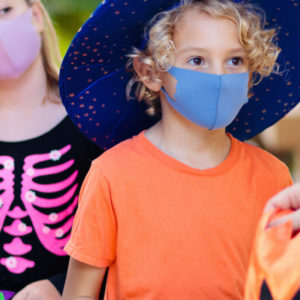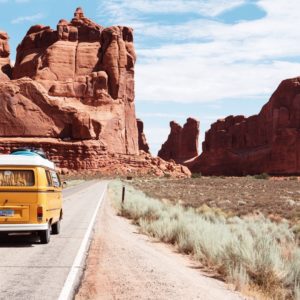According to the Centers for Disease Control and Prevention (CDC), staying home is the best way to prevent the spread of COVID-19. But with the holidays just around the corner, many people will choose to leave the house and embark on a road trip to visit loved ones.
Is your family planning on heading to Grandma’s house for the holidays? Then you’ll want to take some additional precautions to help ensure everyone’s safety. Despite months of quarantine and social distancing, COVID-19 cases are still increasing in many locations across the country—and it’s no time to get complacent.

How to Protect Yourself & Your Loved Ones While Traveling This Holiday Season
If you decide to travel this holiday season, you’ll need to be cautious about protecting yourself and your loved ones from COVID-19. Here are some tips to help keep everyone safe:
1. Plan Your Trip Ahead of TIme
Living through a pandemic means you have to strategize for everything—from going to the grocery store to taking a road trip. So, before you begin your holiday travels, be sure to plan ahead of time.

While you’re laying out your trip, consider the following:
- Does your destination require visitors to quarantine upon arrival?
- Will you be able to social distance properly at your destination?
- Does the community you’re visiting have a significant number of COVID-19 cases?
- Does someone in your household or the person you’re visiting have a condition that makes them high-risk for the virus?
Depending on how you answer these questions, you may want to reconsider the trip altogether. It’s not worth risking your family’s health, being stuck in quarantine—or both.
2. Make Sure That Your Car is in Good Condition
Before you hit the road, it’s important to make sure that your car is in good condition. A breakdown can leave you more vulnerable to the virus. For example, you might need to ride with a tow truck driver, get a rental car, stay at a hotel—all of which could put you at risk of additional exposure to COVID-19.
Our Pre-Road-Trip Car Maintenance Checklist will give you an idea of what you (or your mechanic) should inspect before the trip.

3. Pack and Use Sanitizing Supplies
You probably already have a few bottles of hand sanitizer in your car (make sure to store them properly, away from sunlight). But if not, be sure to stock up before the trip (the CDC recommends sanitizer that’s at least 60% alcohol). You’ll also want to pack latex gloves, disinfecting wipes, disposable plastic bags, and paper towels.
To be safe, you should wear latex gloves whenever you handle a gas pump or touch anything else that’s in a public area. Dispose of the gloves in a plastic bag if there isn’t a trash can available.
Remember to sanitize your hands afterward.
And don’t forget to sanitize your car, as well. Use disinfecting wipes on the steering wheel, door handles, and other parts that are touched frequently.
4. Wear a Mask (Of Course)
While traveling, you should wear a mask whenever you’re outside of your vehicle. Most experts agree that wearing a mask is one of the best ways to protect yourself and others against COVID-19.
The Mayo Clinic points out that, while surgical masks offer the best defense against the virus, readily available cloth masks also offer good protection. Make sure to pack extra masks to ensure that you have enough (you’ll need to change your mask daily) for the entire trip.
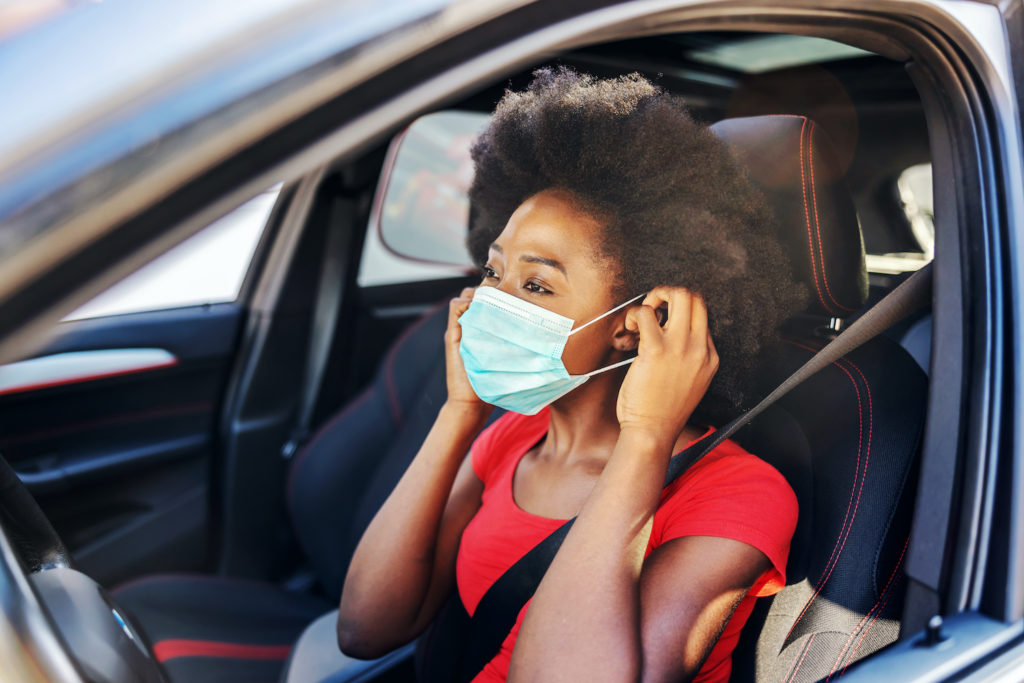
5. Remember to Practice Social Distancing
Whenever you make a pit stop to grab a snack or use the restroom, be sure to practice social distancing. As you know, the CDC recommends staying at least six feet apart from anyone outside of your household.
Avoiding crowds makes it easier to comply with the CDC’s guidelines. That’s why, while you’re traveling, you should avoid stopping at restaurants or using restrooms during high traffic times.
6. Wash Your Hands Often
Frequent hand washing is another precautionary measure that the CDC emphasizes. When you’re out on the road, it’s especially important to wash your hands after using public restrooms. You’ll also want to wash up before eating.
The CDC recommends washing your hands for at least 20 seconds. Once you’re done, avoid touching the faucet, door handle, or anything else in the restroom. Use a paper towel as a barrier between your hand and whatever you must touch.
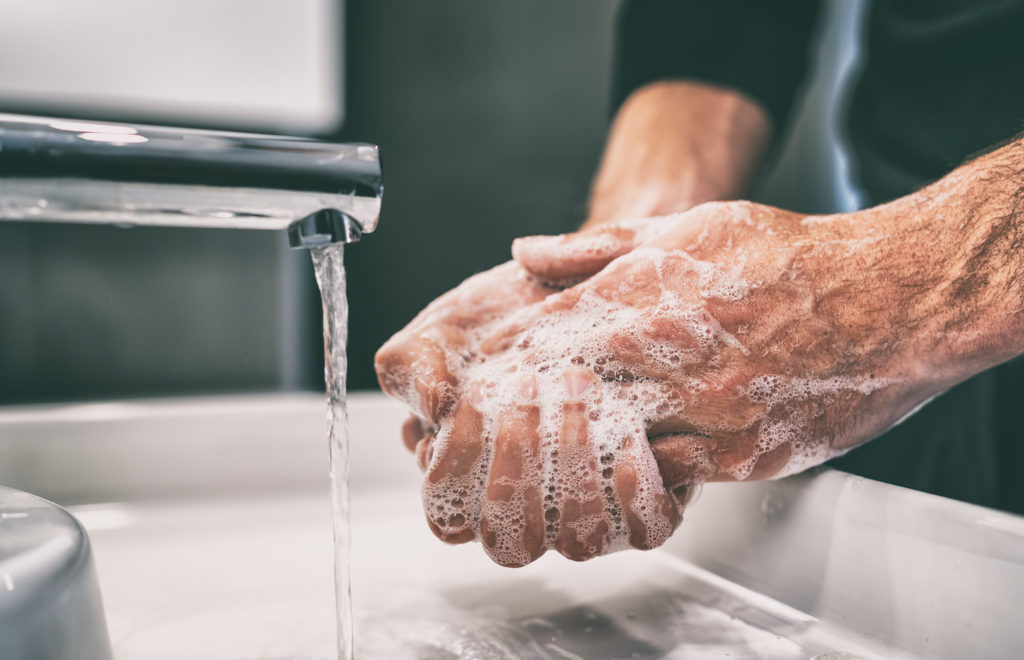
7. Remember to Avoid Touching Your Face
Since the pandemic began, experts have warned against touching your face, eyes, and nose—and it’s important to remember that advice when you’re on the road. Credit card machines, gas pumps, and other high-touch surfaces can be spreading points for the virus.
Touching items like these, and then touching your face, can be dangerous.
8. Limit the Number of Stops You Make
It’s a good idea to make as few stops as possible. Each time you leave the car to use the restroom or grab a cup of coffee, you increase your chances of coming in contact with COVID-19.
The good news is, you can bypass restaurants by packing groceries (and quick snacks for the road). But try to avoid drinking a lot of liquids during your trip to avoid unnecessary bathroom breaks.
9. If You Must Stay at a Hotel, Sanitize Your Room
Because of COVID-19, the American Hotel & Lodging Association’s sanitation guidelines are more stringent than ever. Still, it’s a good idea to sanitize your room if you must stay in a hotel. You’ll want to use disinfecting wipes on all high-touch areas, such as the door handles, toilet handle, and countertops. Wear latex gloves while cleaning.
Also, if you’re staying more than one night, tell the front desk that you do not want housekeeping service. Doing so will limit the number of people visiting your room, while also giving you greater control over the sanitation process.
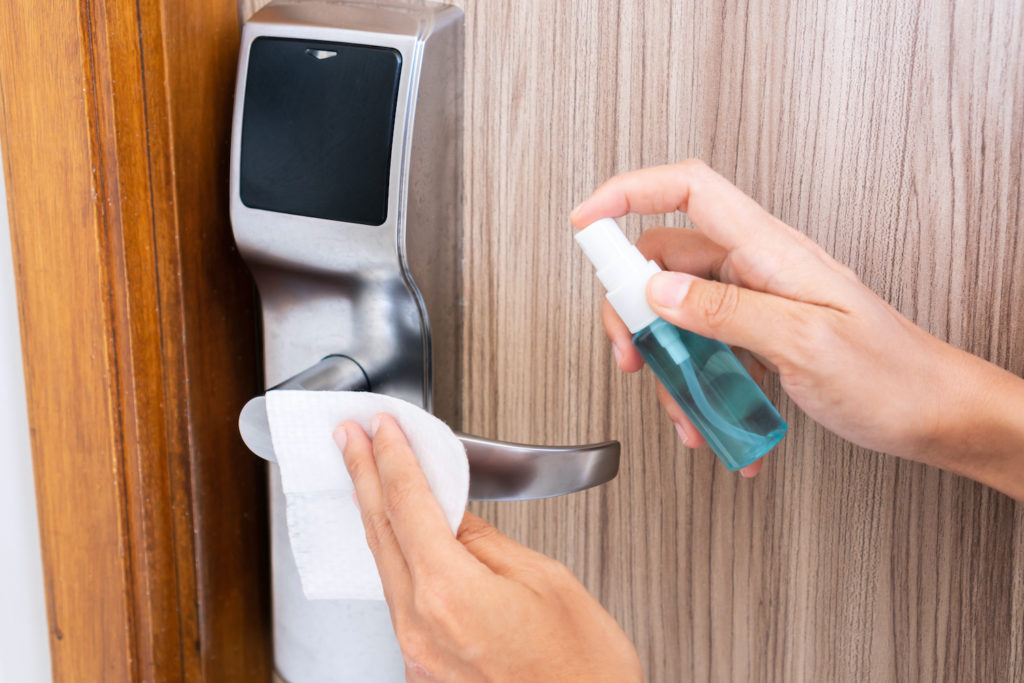
10. Think Twice About Visiting Anyone Who’s High Risk
If your plans involve visiting someone who is considered high-risk for contracting the virus, you may want to skip the trip altogether. Instead of putting friends and family at risk, you can opt to reschedule the journey for a later date when (hopefully) the pandemic has subsided.
Is Traveling This Holiday Season Worth it?
The COVID-19 pandemic has prevented many people from visiting their loved ones—and that separation can seem particularly unbearable during the holidays.
But if you or someone you plan on visiting is compromised, the potential for loss could outweigh the joy of the trip. Even healthy people should avoid traveling as much as possible to prevent the spread of the virus.
It’s important to remember that remaining healthy—so that everyone can get through the pandemic together—is what matters the most.
Any information provided on this Website is for informational purposes only and is not intended to replace consultation with a professional mechanic. The accuracy and timeliness of the information may change from the time of publication.



